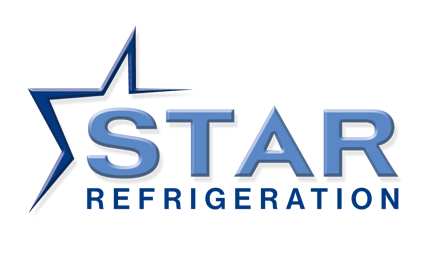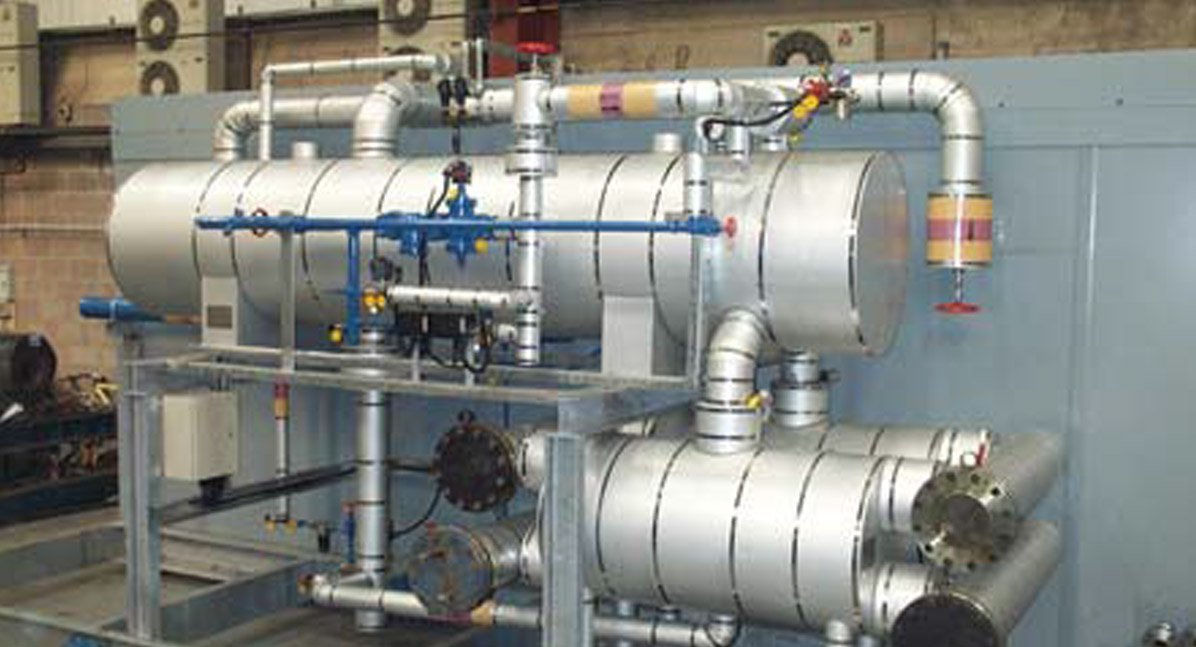Star in the North-East.
Danish owned Lundbeck Pharmaceuticals has recently expanded its facilities at Seal Sands to increase its production capacity of bulk pharmaceuticals.
Foster Wheeler provided the engineering, procurement, construction management and validation/commissioning for the project utilising their project management expertise from their Reading and Teesside offices. The highly prestigious multi-million pound new bulk pharmaceutical production plant, has been built on Lundbeck’s site at Seal Sands in Teesside to provide the manufacturing capabilities of Lundbeck’s new anti-depressant drug – Cipralex.
The process requires that the temperatures must be controlled continuously to acceptable levels. As part of the joint alliance Foster Wheeler’s project management team brought together specialist contractors with expertise in various aspects of the project and capable of meeting the fast track project timescale. These included civil design of the building, on site mechanical and electrical installation services and cooling equipment used to maintain the required process temperatures expected with exothermic chemical reactions.
Star Refrigeration were chosen by the project management team to meet the demands of the specialist refrigeration requirements and also to meet the requirements of Lundbeck’s project cost and rapid site construction program. This single source responsibility for the refrigeration equipment included custom-built refrigeration packages, tank/pump skids and starter/control panels to minimise site construction and testing.
During the process the product temperature requirements vary widely. Therminol D12, supplied by Solutia was chosen as the thermal heat transfer fluid due to its highly stable combined heating and cooling properties and capability of operating at temperatures between –85°C and +260°C.
Lundbeck’s design brief for the refrigeration plant was simple. The refrigeration plant must be extremely reliable, environmentally friendly, with low noise emission and have a state of the art control system available to control the equipment used as part of a modern pharmaceutical production facility. However the method of achieving these requirements was open to discussion.
Star’s approach was to work closely with the FWEL project design team at the beginning of the contract to develop an understanding of the process heat load and temperature profile requirements addressing other specific process needs to provide a refrigeration system meeting all of Lundbeck’s needs. This showed that two refrigeration systems are required. A +5°C circuit is designated as the low temperature heat transfer fluid (LT HTF) Refrigeration Package and a –25°C circuit designated as the low-low temperature heat transfer fluid (LLT HTF) Refrigeration Package. To meet the current trends in Environmental and HSE requirements each package was designed to operate as an air-cooled Ammonia system.
The low temperature heat transfer fluid system capacity is 1400kW. It is arranged to cool 400m3/hr of Therminol D12 from +13.5°C to a final temperature of +5°C. The custom built package included two Howden screw compressors and 185kW drive motors within an acoustic enclosure, a surge drum and two Vahterus plate and shell evaporators operating with ammonia as the refrigerant. The plate and shell evaporators were selected to meet the requirement of low refrigerant charge and the client’s familiarity of use on other parts of the process. The refrigeration package is connected to the remote low noise air-cooled condensers. Compressor oil cooling is achieved using glycol circulated through a separate remote dry air cooler.
The low-low temperature heat transfer fluid system capacity is 220kW arranged to cool 50m3/hr of Therminol D12 from –14.6°C to a final temperature of –25°C. This system package included a single Howden screw compressor with 185kW drive motor within an acoustic enclosure, surge drum and Vahterus plate and shell evaporator operating with Ammonia refrigerant. Similar to the +5C plant the refrigeration package was connected to a remote low noise air-cooled condenser that has an in built oil cooling circuit therefore minimising the required site plot area.
In addition to the refrigeration packages Star’s responsibility includes the supply of a custom built tank and pumps skid to circulate the Therminol between the process reactor loop and tank and the refrigeration package evaporators. Primary and secondary Therminol pumps with ANSI 300 connections were supplied from the USA.
The 12m3 tank in the +5°C circuit provides an adequate thermal buffer capacity to prevent short cycling of the compressors and is also a means to drain Therminol from process heat exchangers and vessels for local maintenance requirements. To accommodate any changes to the Therminol volume in the system due to design ambient changes, the tank incorporates an expansion volume area. It is an important requirement to maintain moisture free conditions in the Therminol circuit so a nitrogen blanket is provided above the working level of Therminol within the tank. The tank pressure is regulated with nitrogen being introduced on fall of tank pressure (2 Bar (g)) and discharged on increase in tank pressure (2.2Bar (g)).
The design of standby in the –25°C system is somewhat different. Lundbeck required the –25°C plant to meet the normal operation of the process with a single refrigeration system and also handle an emergency condition of maintaining the reaction temperatures within stringent acceptable limits should the refrigeration package stop for any unplanned reason. Both FWEL and Star considered this requirement and decided to use a “Latent Heat Storage System”. “This was an interesting design solution rather than installing a complete spare plant” commented David Laws, Star Refrigeration’s Sales Manager for Process Industries.
The system uses a Therminol to Glycol plate & shell heat exchanger connected to a 7m3 Storage Tank containing “Phase Change Material” to allow thermal energy to be stored. The PCM nodules are high-density polyethylene moulded spheres containing a salt solution designed to change phase at a temperature of –18.3°C with a latent heat of 47.5kWh/m3 over 1 hour.
As Therminol is not compatible with the PCM nodule material, a separate loop containing 50% w/w Ethylene Glycol solution was used. In normal operation the Therminol is cooled by the refrigeration package to the design temperature. A Therminol/Glycol Plate & Shell heat exchanger is connected to the system so that the cold Therminol cools the glycol loop and subsequently freezes the PCM nodules in the Latent Heat Storage Tank. Should the refrigeration plant stop for any unplanned reason, the returning warm Therminol passes through the Therminol/Glycol heat exchanger, and will continue to be chilled by the cooling effect stored in the PCM nodules.
The complete Tank/Pump skid includes not only the Latent Heat Storage Tank but also a 2m3 Therminol expansion tank and process pumps. The expansion tank is supplied with the nitrogen blanket and regulating valves. As the plant is operating at low temperatures it was decided to provide a Therminol Drier into the package. The drier takes a constant supply of Therminol from the circuit and passes it across the desiccant filter material removing any moisture that may be present.
Star provided starter/control panels for both systems including ammonia gas detection systems for the screw compressor packages. The acoustic enclosures were fitted with Zone 1 ventilation fans, lighting and ammonia gas detectors.
To control the +5°C and –25°C refrigeration systems Star used their TELSTAR Mark 3 PLC Control system linked to the control junction boxes on each package. Although the TELSTAR Mark 3 system is a stand-alone system it is also linked to the clients DCS control system for remote alarm connected via a modem to the local Star branch office providing remote monitoring of the plant and has a facility to reset the plant remotely should the system report a minor fault. Indication that the plant is operating beyond the design set points minimises unnecessary plant stoppages prior to the service engineer attending site to reset the plant.
This facility not only provides Lundbeck with the means to meet their current production needs, but with its modular design and innovative use of thermal storage it will also be extremely easy and cost-effective to upgrade for future expansion when that is required.
Star focuses on the design, manufacture, installation, commissioning and maintenance of industrial refrigeration systems. The company offers a turnkey package to all users of refrigeration plant.
Star’s technical advisory arm, Star Technical Solutions (STS), operates as an independent consultancy providing advice on refrigeration engineering issues. Star also owns food freezing and chilling equipment specialist Starfrost, as well as mechanical and electrical contractors Penec.
Star has an unrivalled track record of high quality products and services across a broad range of industry sectors including food production, cold storage and distribution, brewing and distilling, building services, leisure, pharmaceutical and petrochemical.
Established in Glasgow in 1970, Star has over 260 employees nationwide and provides fast response 24-hour technical support from a network of nine branches to customers throughout the UK.


